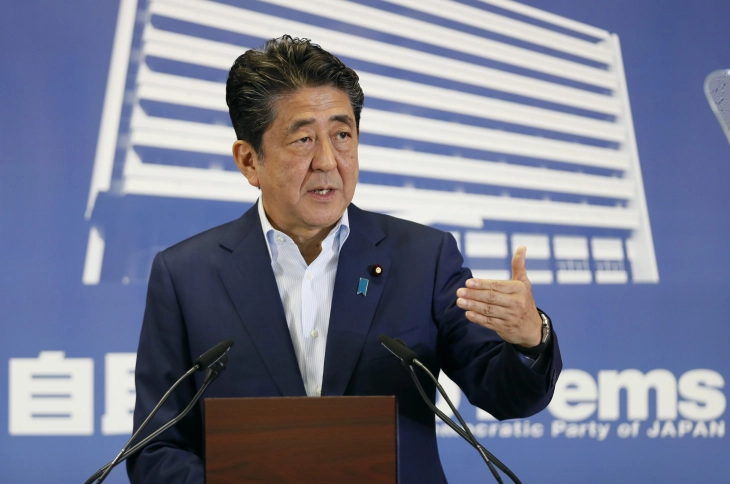Shock spreads through Japan as former premier Shinzo Abe assassinated

Tokyo, 8 July 2022 (dpa/MIA) - Former Japanese prime minister Shinzo Abe, one of the country's most powerful and internationally high-profile politicians, was shot dead in the street on Friday.
The 67-year-old was hit from behind by two bullets in broad daylight at close range during an election campaign speech in the old imperial city of Nara.
Despite blood transfusions, doctors at the hospital could only pronounce the politician dead. The confessed perpetrator, 41-year-old Tetsuya Yamagami from Nara, was immediately arrested by security forces. He used to be a member of the navy. The assassination caused bewilderment all over the world.
Dramatic moments unfolded at the scene. Television pictures showed the attacker silently approaching Abe, taking what police said it was a homemade weapon from a bag and pointing it at Abe from behind. In the footage, Abe raises his fist during his speech when suddenly two loud shots are heard. Screams emanate from the crowd, seconds later Abe falls to the ground.
He holds his chest, his shirt is covered in blood. The next moment, security guards overpower the perpetrator. A campaign worker desperately tried to revive Abe with cardiac massage.
According to Japanese broadcaster NHK, the confessed assassin had been a member of the Japanese navy for three years until 2005. Because of Japan's pacifist constitution, the military there is called the Self-Defence Forces. Yamagami quit his employment with a company in May, said a representative of an employment agency.
The alleged shooter served in the country's navy for three years until his discharge in 2005, NHK reported, citing Defence Ministry sources.
After being detained, the alleged perpetrator said he was "dissatisfied" and had hoped to kill Abe, NHK reported.
The shooter did not hold a grudge against Abe's political beliefs, the Naha prefecture police cited him as saying.
Abe was Japan's longest-serving prime minister, from 2012 to 2020. He stepped down due to illness, but maintained a strong political presence.
One of his main focuses was improving the country's defences and upgrading its constitution so Japan could participate in foreign military ventures.
He was also known for his effort to boost the Japanese economy, which become known as "Abenomics." This involved cheap money, debt-financed stimulus and the promise of structural reforms to lead Japan out of decades of deflation and economic stagnation.
The 67-year-old was flown by helicopter to Nara Medical University Hospital, where he was later declared dead.
Japanese Prime Minister Fumio Kishida suspended his election campaign on Friday following the news of the shooting. Kishida left the northern prefecture of Yamagata to return to Tokyo, Japanese media reported. His government reportedly set up a crisis team.
The LDP, the party that Abe led for years, was projected to score a resounding victory in upper house elections on Sunday.
The speaker of the lower house of parliament, Hiroyuki Hosoda, called the shooting "an attack on parliamentary democracy which cannot be tolerated."
Leaders worldwide expressed their reaction on social media to the news of the shooting.
"We remain closely at Japan's side during these difficult hours," tweeted German Chancellor Olaf Scholz. Former chancellor Angela Merkel wrote in an online statement "that Japan and the world are losing a great statesman in Shinzo Abe. With him, I am losing a political companion."
US President Joe Biden said in a statement published by the White House that he "was stunned, outraged, and deeply saddened by the news."
Russian President Vladimir Putin said "the hand of a criminal has ended the life of an outstanding statesman."







